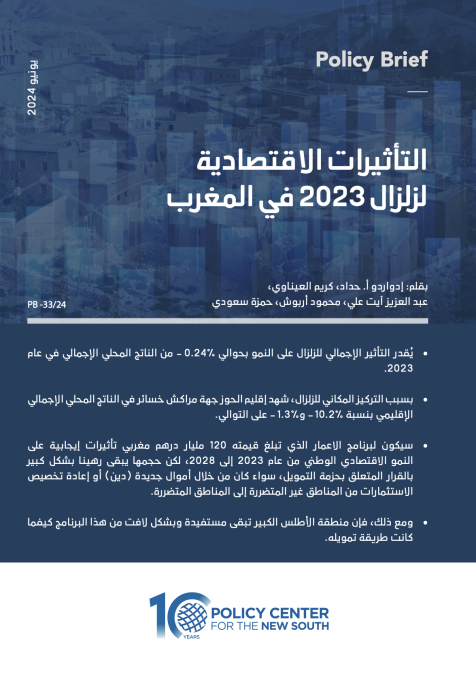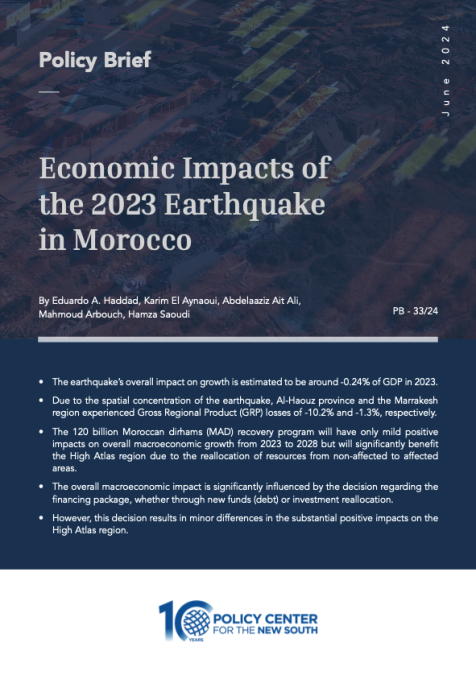
The Policy Center for the New South (PCNS) has launched “Lessons for Rebuilding after Dramatic Earthquakes”, a comprehensive interviews series. This initiative, part of the Policy Center’s strategic response to enhance crisis management and recovery strategies, aims to capitalize on global expertise in the field of natural disaster management.
The series is a curated collection of interviews and multimedia content, drawing on the knowledge of renowned experts from countries significantly experienced in earthquake response, including Japan, Mexico, Turkey, Italy and Chile. It offers practical solutions and real-world experiences, focusing on effective post-disaster recovery and sustainable rebuilding methods. This endeavor underscores PCNS's commitment to not only better understand but also inform the public on robust strategies to manage and recover from such catastrophic events.
Designed for policymakers, urban planners, emergency coordinators, NGOs, academics, researchers, and students, this endeavor aims to disseminate knowledge to multiple stakeholders when it comes to natural disaster management, and encourages innovative approaches to disaster relief, both within Morocco and internationally.




